Hyundai i30 Wagon vs Mazda 6 Estate - Differences and prices compared
Compare performance (140 HP vs 194 HP), boot space and price (24800 £ vs 30000 £ ) at a glance. Find out which car is the better choice for you – Hyundai i30 Wagon or Mazda 6 Estate?
Costs and Efficiency:
Price and efficiency are key factors when choosing a car – and this is often where the real differences emerge.
Hyundai i30 Wagon has a noticeable advantage in terms of price – it starts at 24800 £ , while the Mazda 6 Estate costs 30000 £ . That’s a price difference of around 5152 £.
Fuel consumption also shows a difference: Hyundai i30 Wagon manages with 5.70 L and is therefore slightly more efficient than the Mazda 6 Estate with 6.80 L. The difference is about 1.10 L per 100 km.
Engine and Performance:
Power, torque and acceleration say a lot about how a car feels on the road. This is where you see which model delivers more driving dynamics.
When it comes to engine power, the Mazda 6 Estate has a noticeable edge – offering 194 HP compared to 140 HP. That’s roughly 54 HP more horsepower.
In acceleration from 0 to 100 km/h, the Mazda 6 Estate is noticeable quicker – completing the sprint in 8.10 s, while the Hyundai i30 Wagon takes 9.80 s. That’s about 1.70 s faster.
In terms of top speed, the Mazda 6 Estate performs a bit better – reaching 223 km/h, while the Hyundai i30 Wagon tops out at 197 km/h. The difference is around 26 km/h.
There’s also a difference in torque: Mazda 6 Estate pulls slight stronger with 258 Nm compared to 253 Nm. That’s about 5 Nm difference.
Space and Everyday Use:
Beyond pure performance, interior space and usability matter most in daily life. This is where you see which car is more practical and versatile.
Both vehicles offer seating for 5 people.
In curb weight, Hyundai i30 Wagon is a bit lighter – 1316 kg compared to 1475 kg. The difference is around 159 kg.
In terms of boot space, the Hyundai i30 Wagon offers to a small extent more room – 602 L compared to 522 L. That’s a difference of about 80 L.
In maximum load capacity, the Mazda 6 Estate performs minimal better – up to 1664 L, which is about 14 L more than the Hyundai i30 Wagon.
When it comes to payload, Mazda 6 Estate minimal takes the win – 571 kg compared to 524 kg. That’s a difference of about 47 kg.
Who wins the race in the data check?
The Mazda 6 Estate sits well ahead of its rival in the objective data comparison.
This result only shows which model scores more points on paper – not which of the two cars feels right for you.
Costs and Consumption
View detailed analysis
Engine and Performance
View detailed analysis
Dimensions and Body
View detailed analysis
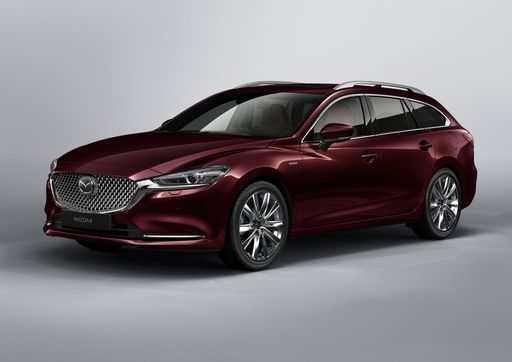
Mazda 6 Estate
Hyundai i30 Wagon
The Hyundai i30 Wagon is a practical family hauler that pairs roomy, sensible packaging with clean, modern lines and a surprisingly composed chassis. Comfortable, well-equipped and priced to make rivals sweat, it quietly ticks the boxes for daily life and weekend escapes while still managing a little grin on twisty roads.
details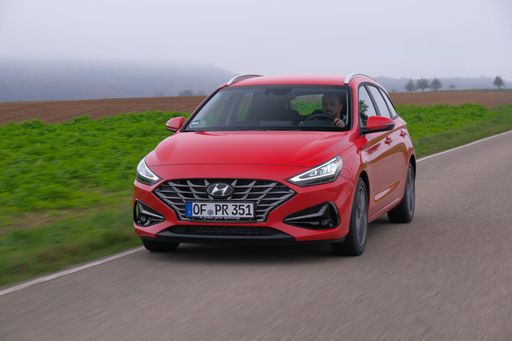
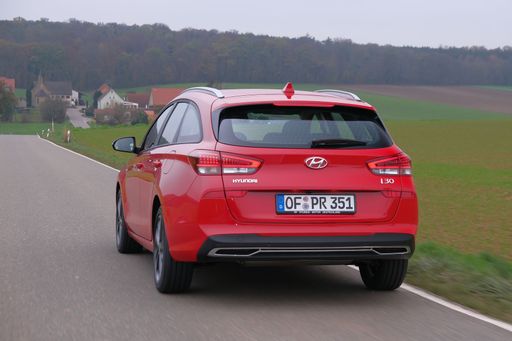
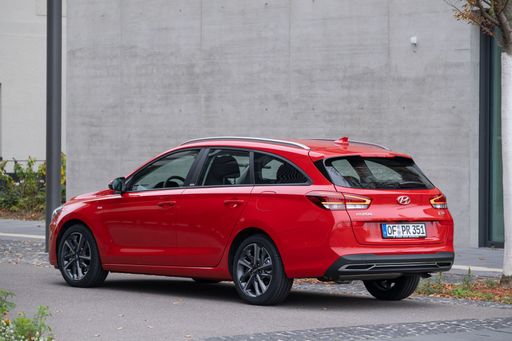
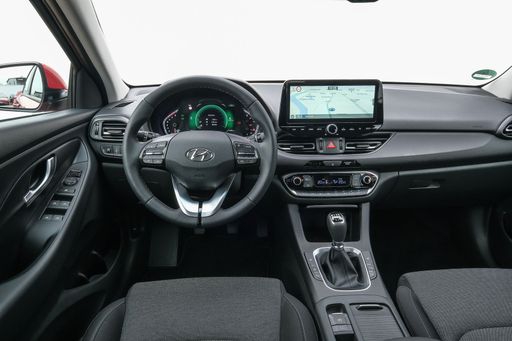
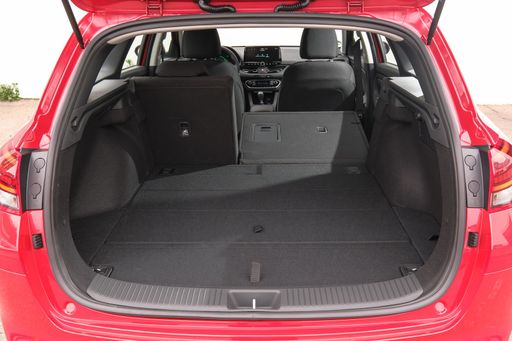
Mazda 6 Estate
The Mazda 6 Estate marries elegant, flowing design with everyday practicality, so you get a grown-up wagon that still looks the part on a weekend escape. It rewards drivers with poised handling and a nicely finished cabin, proving that sensible family cars can be engaging — and a little bit cheeky — too.
details
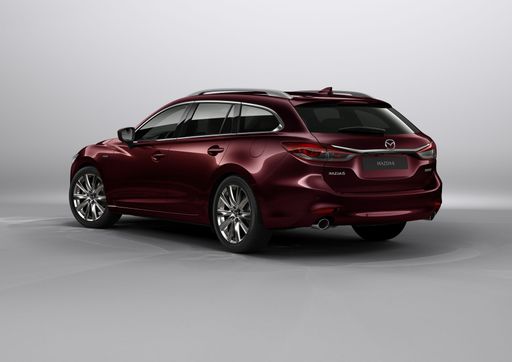
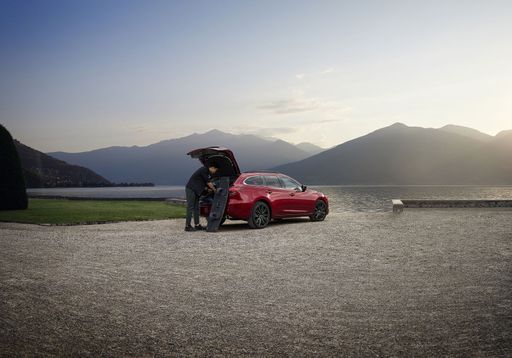
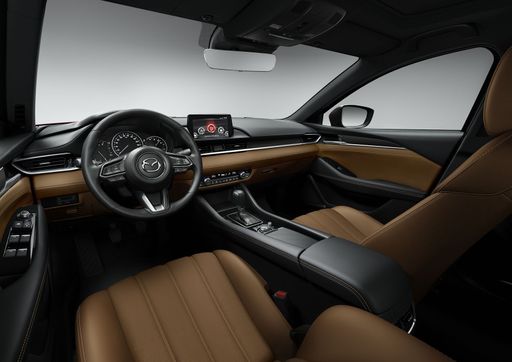
Costs and Consumption |
|
|---|---|
|
Price
24800 - 30100 £
|
Price
30000 - 43500 £
|
|
Consumption L/100km
5.7 - 6 L
|
Consumption L/100km
6.8 - 7.6 L
|
|
Consumption kWh/100km
-
|
Consumption kWh/100km
-
|
|
Electric Range
-
|
Electric Range
-
|
|
Battery Capacity
-
|
Battery Capacity
-
|
|
co2
130 - 136 g/km
|
co2
155 - 172 g/km
|
|
Fuel tank capacity
50 L
|
Fuel tank capacity
62 L
|
Dimensions and Body |
|
|---|---|
|
Body Type
Estate
|
Body Type
Estate
|
|
Seats
5
|
Seats
5
|
|
Doors
5
|
Doors
5
|
|
Curb weight
1316 - 1461 kg
|
Curb weight
1475 - 1598 kg
|
|
Trunk capacity
602 L
|
Trunk capacity
522 L
|
|
Length
4585 mm
|
Length
4805 mm
|
|
Width
1795 mm
|
Width
1840 mm
|
|
Height
1475 mm
|
Height
1480 mm
|
|
Max trunk capacity
1650 L
|
Max trunk capacity
1664 L
|
|
Payload
439 - 524 kg
|
Payload
483 - 571 kg
|
Engine and Performance |
|
|---|---|
|
Engine Type
Petrol, Petrol MHEV
|
Engine Type
Petrol
|
|
Transmission
Manuel, Automatic
|
Transmission
Manuel, Automatic
|
|
Transmission Detail
Manual Gearbox, Dual-Clutch Automatic
|
Transmission Detail
Manual Gearbox, Automatic Gearbox
|
|
Drive Type
Front-Wheel Drive
|
Drive Type
Front-Wheel Drive
|
|
Power HP
100 - 140 HP
|
Power HP
145 - 194 HP
|
|
Acceleration 0-100km/h
9.8 - 13.3 s
|
Acceleration 0-100km/h
8.1 - 10.7 s
|
|
Max Speed
178 - 197 km/h
|
Max Speed
205 - 223 km/h
|
|
Torque
172 - 253 Nm
|
Torque
213 - 258 Nm
|
|
Number of Cylinders
3 - 4
|
Number of Cylinders
4
|
|
Power kW
74 - 103 kW
|
Power kW
107 - 143 kW
|
|
Engine capacity
998 - 1482 cm3
|
Engine capacity
1998 - 2488 cm3
|
General |
|
|---|---|
|
Model Year
2024
|
Model Year
2021 - 2022
|
|
CO2 Efficiency Class
D, E
|
CO2 Efficiency Class
E, F
|
|
Brand
Hyundai
|
Brand
Mazda
|
What drivetrain options does the Hyundai i30 Wagon have?
Available configurations include Front-Wheel Drive.
